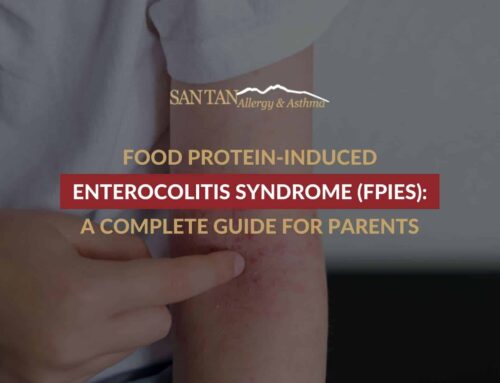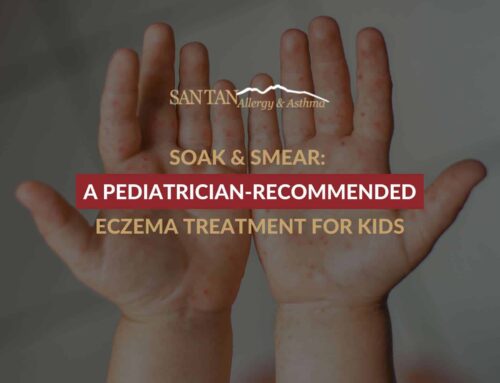Maximizing Relief: Integrative Approaches To Treating Persistent Allergic Rhinitis
Commonly known as hay fever, allergic rhinitis is a condition that affects millions of people worldwide. It happens when the immune system mistakenly overreacts to allergens in the air such as pollen, dust mites, or animal dander. Persistent allergic rhinitis can disrupt daily life by causing symptoms like sneezing, stuffy nose, and itchy eyes among others. This condition often requires comprehensive management with different treatments being used together for the best results. Below are some most effective treatments for persistent allergic rhinitis.
What is Allergic Rhinitis? Causes, Symptoms & More
Allergic Rhinitis occurs due to allergens which are wrongly perceived as harmful by our immune system leading into an inflammation response within nasal passages hence making symptoms both disruptive and bothersome. Unlike seasonal ones where they only occur during certain seasons; this type of symptom lasts throughout the year.
Top Pharmacological Treatments For Persistent Allergic Rhinitis
Antihistamines
Antihistamines are medications that relieve signs of allergy by blocking histamine (a substance in the body responsible for creating allergic reactions). There are first-generation antihistamines which cause sleepiness and second-generation antihistamines that do not have this side effect usually thus considered more suitable for long-term usage.
- Example: Cetirizine, Loratadine, Fexofenadine
Intranasal Corticosteroids
It is one other strongest therapy available against continuous cases of allergic rhinitis because it lessens swelling within the nose thereby relieving symptoms such as stuffed up nose, sneezing and runny nose. These drugs can be used safely over an extended period under care from an allergist or immunologist.
- Example: Fluticasone , Budesonide , Mometasone
Decongestants
These medicines work by narrowing blood vessels that supply the lining of your nose with blood therefore reducing congestion quickly. However, they are recommended for short-term use only due to the possibility of developing addiction where more severe congestion can follow whenever stopped.
- Example: Pseudoephedrine, Phenylephrine
Immunotherapy For Allergic Rhinitis: Benefits & Options
Allergy Shots (Subcutaneous Immunotherapy)
For individuals suffering from persistent allergic rhinitis, allergy shots offer long-term relief by significantly reducing symptoms and improving quality of life. This treatment involves getting injected regularly with small amounts of allergens which are then increased slowly until the patient develops tolerance.
- Benefits: Long-term symptom relief, potential to modify underlying allergic disease
Sublingual Immunotherapy (SLIT)
This is an alternative to subcutaneous immunotherapy where tablets containing specific types of allergen extracts are placed under the tongue daily or several times a day depending on severity and response rate desired. It achieves similar results as well but can be done at home without visiting clinic often . SLIT may work better against some allergens like grass pollen or dust mites than others.
- Benefits: Convenient, safe for home use, fewer side effects compared to allergy shots
Lifestyle & Environmental Control
In managing chronic cases of allergic rhinitis; lifestyle changes together with environmental modifications play a critical role in achieving successful outcomes. These measures not only help in minimizing symptoms but also enhance general health status.
Allergen Avoidance
- Dust Mites: Use dust-proof covers for pillows and mattresses; wash bedding weekly in hot water; keep humidity low indoors etc.
- Pollen: Keep windows shut during peak pollen periods; use air conditioners while indoors; shower after outdoor activities among other things.
- Pet Dander: Don’t let pets sleep in bedrooms with people who have allergies, especially; bathe animals often with appropriate shampoo; use HEPA filters in home ventilation.
Nasal Irrigation
Rinsing the nasal passages with a saltwater solution can help clear mucus and allergens from the nose, relieving congestion and improving breathing. It’s a simple and effective technique that can be done at home using readily available supplies.
- Method: Neti pot, saline nasal spray, squeeze bottle
Exploring Complementary & Alternative Treatments For Allergic Rhinitis
Acupuncture
While some studies suggest acupuncture – an ancient practice that involves inserting thin needles into specific points on the body to rebalance energy flow – may help relieve symptoms of allergic rhinitis, it has not been thoroughly studied as a treatment for this condition.
- Advantage: Non-pharmacologic, may be used alongside other treatments
Herbal Remedies
Some herbal remedies, such as butterbur and quercetin, appear to ease symptoms of allergic rhinitis; however, individuals should consult an allergy expert before starting any herbal treatment to ensure safety and efficacy.
- Examples: Butterbur, Quercetin, Stinging Nettle
Asthma & Allergic Rhinitis
Many people who have persistent or chronic allergies also experience asthma. If you are able to manage your allergic rhinitis well it will lead to better control over your asthma hence lower frequency of its symptoms too. Such patients may undergo asthmatic testing by an asthma doctor who might recommend treating both conditions together through an all-inclusive plan.
Effective Management Of Persistent Allergic Rhinitis For Improved Quality Of Life
In order to control chronic hypersensitive coryza cases well pharmacological treatments must be combined with lifestyle changes plus complementary therapies alongside immunotherapy. As such perennial allergic rhinitis sufferers should see allergists or allergy doctors so that they can develop personalized management plans based on individual needs while at the same time improving quality of their lives. One’s health may greatly benefit from seeking professional advice on dealing with these allergies since even slight modifications made towards appropriate management strategies could lead to significant improvements in daily functioning among such persons. Therefore if effective relief against allergies is what you are looking for then contact us today like our Allergy Doctors Headquartered at San Tan Allergy & Asthma!
San Tan Allergy & Asthma
4915 E Baseline Rd #112
Gilbert, AZ 85234
Phone: 480-626-6600
Email: officemanager@santanallergy.com
Website: https://santanallergy.com/









